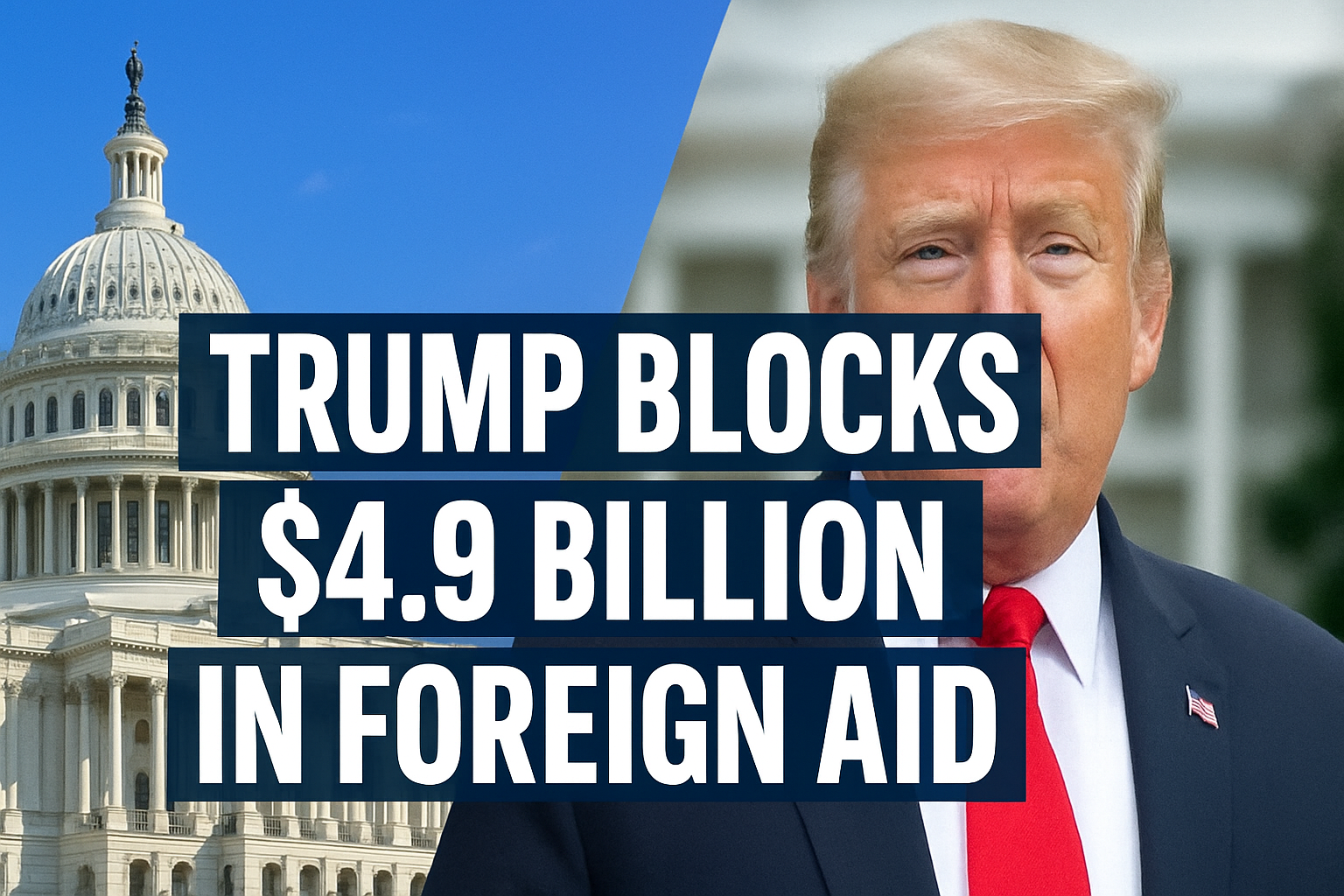Washington, D.C. — President Donald Trump has made headlines once again as he Trump Blocks 4.9 Billion Dollar in Foreign Aid that Congress had already approved. The move, executed through a rarely used tactic called a pocket rescission, has not been seen in nearly half a century.
This decision has sparked intense debate in Washington and across the globe, raising questions about the balance of power between the executive and legislative branches, as well as the impact on U.S. foreign relations.
What Is a Pocket Rescission?
A pocket rescission is a budgetary maneuver under the Impoundment Control Act of 1974, which allows presidents to request the cancellation of funds. Normally, Congress has 45 days to respond, but if the proposal is submitted near the end of the fiscal year, the funds may expire before lawmakers can act.
Critics argue that this loophole effectively allows the president to sidestep Congress’s power of the purse, undermining the Constitution’s clear separation of powers.
Learn more from the official GAO ruling. (nofollow)
Breakdown: Where Did the $4.9 Billion Come From?
According to budget documents, the blocked funds were set aside for:
- $3.2 billion for development assistance
- $393 million for peacekeeping missions
- $521 million in contributions to international organizations (WTO, UNESCO, etc.)
- Additional funds for humanitarian programs and global health initiatives
This makes the Trump Blocks $4.9 Billion in Foreign Aid story not just about politics but about real-world impact on millions worldwide.
Bipartisan Criticism
Lawmakers from both parties have condemned the decision:
- Senator Susan Collins (R-Maine): “This is unlawful and deeply concerning.”
- Senator Chuck Schumer (D-N.Y.): “Trump is attempting a power grab that undermines Congress.”
Even some Republicans who typically support Trump expressed unease, warning of a dangerous precedent if future presidents exploit the same loophole.
Read AP’s report on bipartisan backlash.
Global Impact of Trump Blocking $4.9 Billion in Foreign Aid
The decision could have far-reaching consequences beyond Washington:
1. Humanitarian Aid Disruption
Millions in developing nations rely on U.S. funding for food, disaster relief, and health programs. The freeze threatens ongoing projects.
2. Weakening UN Peacekeeping
The $393 million cut affects U.N. operations in Africa, Asia, and the Middle East, potentially creating power vacuums.
3. Reduced U.S. Influence
Withholding contributions to organizations like the WTO and UNESCO may weaken American leadership and allow China and Russia to expand influence.
4. Strained Diplomacy
Allies often view U.S. foreign aid as a sign of global responsibility. This sudden halt risks damaging trust.
Financial Times also reported details of the aid breakdown.
Legal Challenges Ahead
The Government Accountability Office (GAO) has previously declared pocket rescissions illegal. Legal experts predict lawsuits will soon test whether Trump’s maneuver can withstand scrutiny.
If courts side with Congress, the funds may be restored. If they side with Trump, presidents could gain new powers to unilaterally cancel spending.
Domestic Politics: A Risk of Shutdown
With Congress facing a looming September 30 government funding deadline, this move complicates negotiations. By targeting foreign aid, Trump appeals to his base but risks escalating tensions on Capitol Hill.
The standoff could heighten the risk of a government shutdown just as lawmakers struggle to pass a new budget.
Table of Contents
Conclusion
The decision in which Trump Blocks $4.9 Billion in Foreign Aid is more than just a budgetary issue. It’s a test of constitutional authority, a challenge to U.S. global leadership, and a flashpoint in domestic politics.
As legal battles unfold and international partners react, the world is watching to see whether Congress reasserts its authority or if Trump has successfully expanded presidential power in a way not seen for decades.
